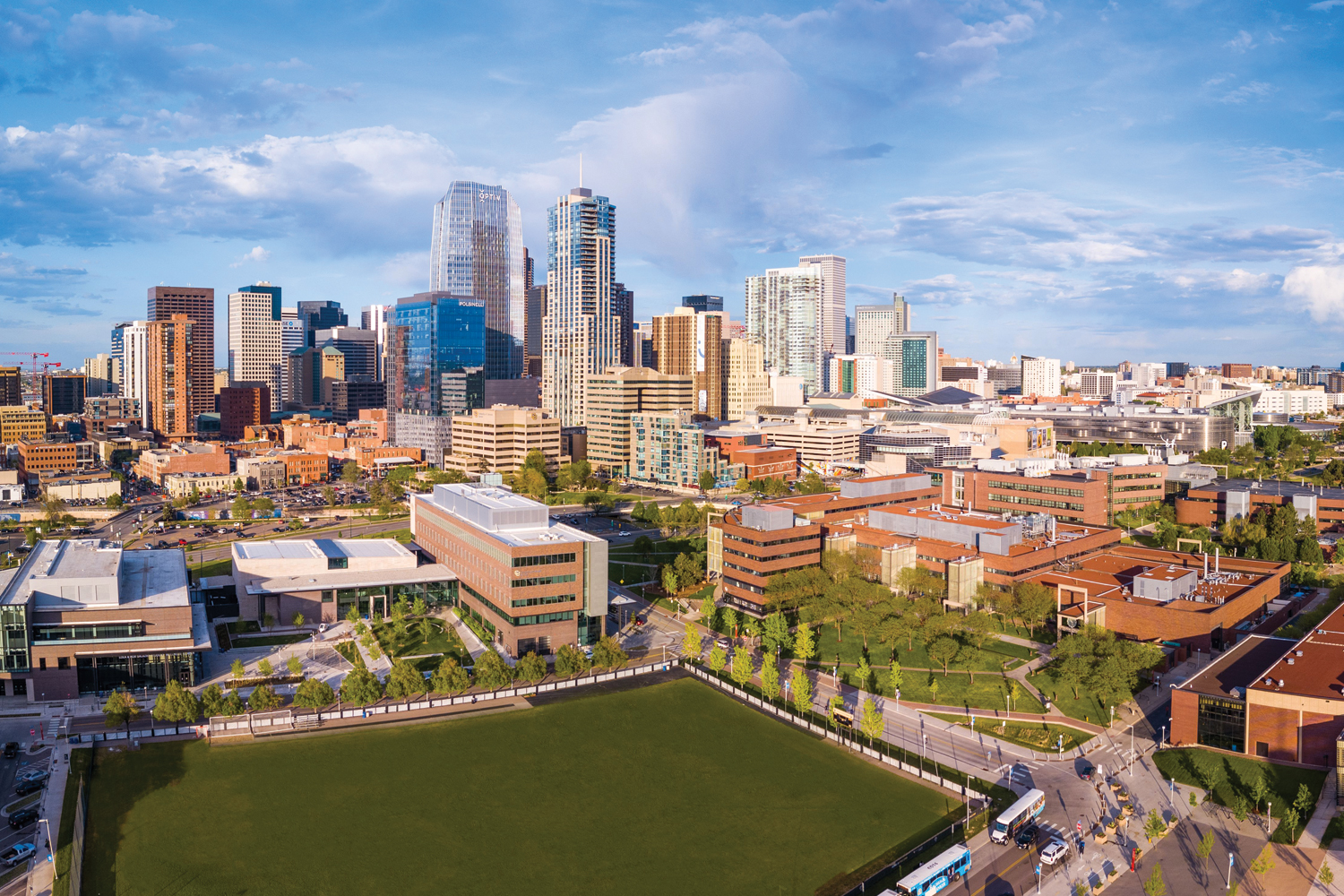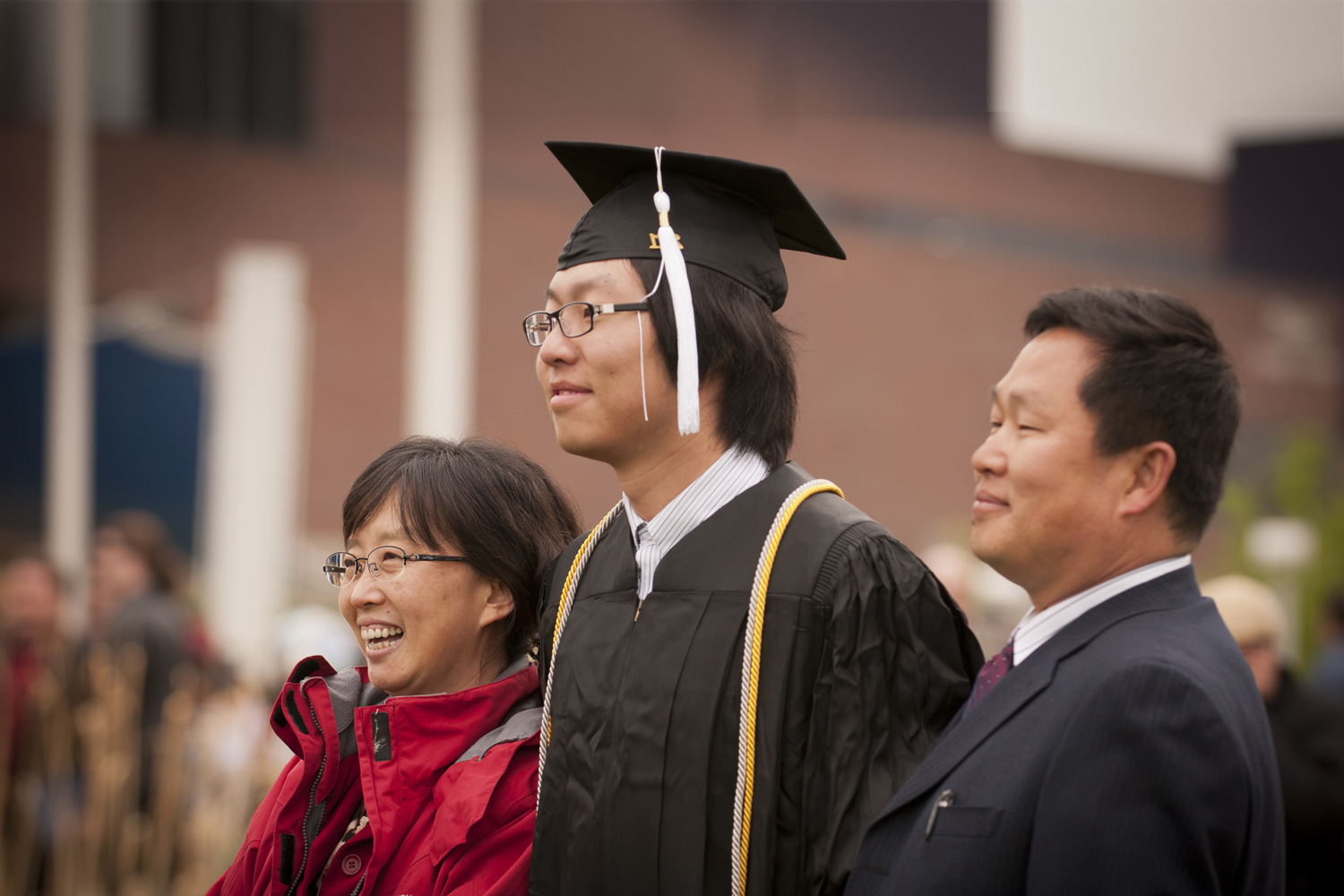Faculty Profile: Alexander Engau on the Absolute Value of Math (and Bats)

Alexander Engau is an Assistant Professor in the Department of Mathematical and Statistical Sciences at the University of Colorado Denver. And is currently teaching as a visiting faculty member at ICB in Beijing. Having published in a number of international academic journals, his research focuses on the theory and methodology of mathematical programming, optimization, and decision making with a particular interest in interior-point methods and semidefinite relaxations for combinatorial optimization. In his spare time Alexander keeps busy with music, sports, and exploring the outdoors.
Tell us something about your background (your hometown, hobbies and interests).
Before I enrolled in my university, I lived with my parents, my older brother and younger sister in a small town in Germany. The total population was about 30,000, so it was obviously a lot smaller than Beijing – or even Denver. We could ride our bicycles almost everywhere. When I moved to bigger cities to study and later work in the USA, Canada, and now China, that’s probably the only thing that never changed. As I´m used to it, I´m still riding a bicycle as often as possible. I also enjoy being outside for other sports, hiking, traveling, and exploring new places. Otherwise, I like music, especially classical and jazz, and, of course, mathematics.
How did you decide to teach at the ICB program in Beijing for one year? What did you expect? And did you gain anything from this experience? Do you think it helpful for your research?
During the last few years at CU Denver, I had a lot of ICB students in my math courses who gave me a pretty good idea what to expect in terms of teaching here in Beijing. During my own studies, I also made some other Chinese friends – very nice people – so I was excited about the opportunity to learn more about their background by actually living in their home country for a while. While I made some plans of places to visit, I generally avoid having too many expectations. I’d rather remain open and respond to what actually happens and then pursue unforeseen opportunities as they arise. For example, I met some new colleagues at a local conference and now I attend their research seminar at AMSS/CAS (Academy of Mathematics and Systems Science at the Chinese Academy of Sciences), where I also presented my own work this month. That was really nice, because mathematical research in general requires a lot of deep, individual thought that is not necessarily tied to a specific place but can be done here in Beijing or almost anywhere else.
I see you have been in a lot of countries. Is there some difference between China, a developing country, and the others you have been before? After living in Beijing for several months, how would you describe the city?
Of course, any two places are different, but the rich culture, long history, and economic and political influence of China make it a special and interesting place to be, especially here in Beijing. Despite all the differences, however, I think that it´s easy to find many similarities and adjust to the way people live here. For example, the arguably most challenging aspect of living in China for me is the language, but one key is to not let that be an obstacle. One must avoid frustration, be patient and friendly, keep learning new words and characters, and find ways to communicate beyond the verbal language, such as with hands, fingers, smiles, and all types of gestures. And you know, once a path of communication is established, and once both sides become willing to open up to each other, a lot of the initial differences seem to become a whole lot smaller. Because in the end, it’s less about the place than the people, and if you bring patience, a positive attitude, and curiosity to meet and get to know some locals, you will soon find that much of their motivation, beliefs, and views are often not too different from your own.
Beijing boasts diverse Chinese cuisines. Name some dishes or restaurants you like best.
I am actually not very picky about cuisines or places, but I like to try different types of food and usually know whether I like something new when I taste it. For example, I always enjoyed Italian pasta, so I could easily live off Chinese dumplings and wheat noodles if I had to. But I also loved the grilled bats some of the students and I discovered in Hunan province. On the other hand I am afraid I will never be a big fan of sea cucumbers. So I recommend sampling everything. Savor the first and any subsequent bites as long as the enjoyment lasts, because some food you may never be offered again.
When teaching in an unfamiliar country, how do you improve the communication with students? How has teaching at ICB influenced your teaching style and philosophy?
As I indicated earlier, the key to effective communication is to gain familiarity and thereby develop a common sense of understanding with my students, by learning about their backgrounds, interests, and motivations. But you may be hinting at another interesting question: that learning in China is perceived to be by rote memorization, rather than through a critical, creative process. But, you know, that’s actually a general problem that we have in mathematics, and in that regard I feel teaching at ICB for me is not too different from teaching back in Denver. In particular, unlike in some other countries where being “not good” in math seems to have become socially fashionable, many Chinese students and their parents still value mathematics for its cultural, intellectual, and of course highly practical importance. And it’s fantastic to see my students realize that good quantitative skills and careful logical thought will give them a substantial advantage in their future lives and careers.
by learning about their backgrounds, interests, and motivations. But you may be hinting at another interesting question: that learning in China is perceived to be by rote memorization, rather than through a critical, creative process. But, you know, that’s actually a general problem that we have in mathematics, and in that regard I feel teaching at ICB for me is not too different from teaching back in Denver. In particular, unlike in some other countries where being “not good” in math seems to have become socially fashionable, many Chinese students and their parents still value mathematics for its cultural, intellectual, and of course highly practical importance. And it’s fantastic to see my students realize that good quantitative skills and careful logical thought will give them a substantial advantage in their future lives and careers.
What one thing do you want your students to take away from their educational experience?
As professors and teachers, we think about this question a lot. And a few months ago I used the following Confucius quote to finish a lecture for our ICB Undergraduate Research Program, which describes one of my primary goals to encourage my students to never stop exploring the world and use or share what they continuously learn: 学而不厌诲人不倦.
UPDATES
International College Beijing
-

Zoom Meetings & Guidance for ICB Students Coming to Denver
Nov 2, 2021For ICB students on the CU Denver campus, Mo collaborates closely with the College of Liberal Arts and Sciences academic advisors to help students with course options and to find employment through the Curricular Practical Training (CPT) program.Full story -

Greetings from Jingxuan “Jasmine” Mo
Oct 21, 2021"Welcome, ICB Students! At CU Denver, you’ll receive a world-class education and the unique experience of studying and living in the heart of downtown Denver, adjacent to the nearby scenic Rocky Mountains. I hope you will enjoy and benefit from the education and community experience here to its fullest. And remember, we’re here to assist and support you!"Full story -

Play Ball! ICB Students Cheer for the Colorado Rockies
Oct 18, 2021ICB students in Denver cheered one of their new favorite baseball teams, the Colorado Rockies, at Coors Field. The ICB students joined fellow classmates from around the world for this international student event, one of many free activities organized for students by the Office of International Affairs.Full story -






